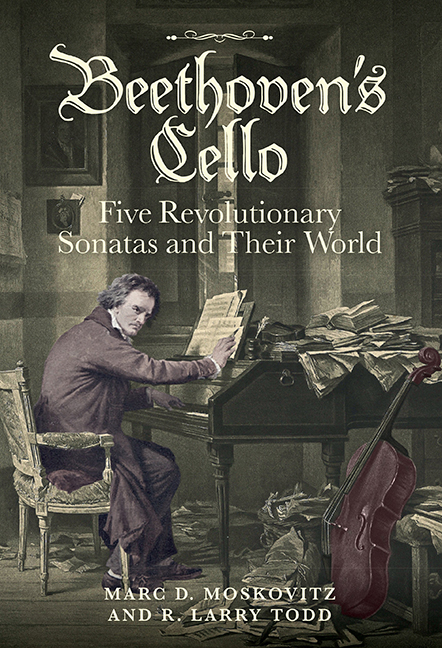73 results
7 - “Worthy of Serious Attention”
- from Part II - Profiles of the Music
-
-
- Book:
- The Cambridge Companion to Amy Beach
- Published online:
- 19 October 2023
- Print publication:
- 02 November 2023, pp 121-153
-
- Chapter
- Export citation
“I'm Workin’ on My Buildin”: Freedom and Foundation-Building in Florence Price's Two Violin Fantasies
-
- Journal:
- Journal of the Society for American Music / Volume 17 / Issue 3 / August 2023
- Published online by Cambridge University Press:
- 04 July 2023, pp. 243-260
- Print publication:
- August 2023
-
- Article
- Export citation
8 - Contextualizing Clara Schumann’s Romanzen
-
-
- Book:
- Clara Schumann Studies
- Published online:
- 25 November 2021
- Print publication:
- 02 December 2021, pp 165-186
-
- Chapter
- Export citation
1 - “Of the Highest Good”: Joachim’s Relationship to Mendelssohn
-
-
- Book:
- The Creative Worlds of Joseph Joachim
- Published by:
- Boydell & Brewer
- Published online:
- 07 October 2022
- Print publication:
- 01 December 2021, pp 15-35
-
- Chapter
- Export citation
Rebecca Cypess and Nancy Sinkoff, eds, Sara Levy's World: Gender, Judaism, and the Bach Tradition in Enlightenment Berlin (Rochester: University of Rochester Press, 2018), x + 292 pp. $99.00
-
- Journal:
- Nineteenth-Century Music Review / Volume 17 / Issue 3 / December 2020
- Published online by Cambridge University Press:
- 27 August 2019, pp. 477-481
-
- Article
- Export citation
3 - Salon Culture in the Circle of Joseph Joachim, or, Composing Inwardness: C. J. Arnold’s Quartettabend bei Bettina von Arnim Reconsidered
-
-
- Book:
- Musical Salon Culture in the Long Nineteenth Century
- Published by:
- Boydell & Brewer
- Published online:
- 17 January 2023
- Print publication:
- 22 April 2019, pp 43-64
-
- Chapter
- Export citation
Managing Herbicide Resistance: Listening to the Perspectives of Practitioners. Procedures for Conducting Listening Sessions and an Evaluation of the Process
-
- Journal:
- Weed Technology / Volume 32 / Issue 4 / August 2018
- Published online by Cambridge University Press:
- 09 August 2018, pp. 489-497
-
- Article
-
- You have access
- Open access
- HTML
- Export citation
Managing Wicked Herbicide-Resistance: Lessons from the Field
-
- Journal:
- Weed Technology / Volume 32 / Issue 4 / August 2018
- Published online by Cambridge University Press:
- 09 August 2018, pp. 475-488
-
- Article
-
- You have access
- Open access
- HTML
- Export citation
Introduction
-
- Journal:
- Nineteenth-Century Music Review / Volume 15 / Issue 3 / December 2018
- Published online by Cambridge University Press:
- 03 July 2018, pp. 325-328
-
- Article
- Export citation
Late Brahms, Ancient Modes
-
- Journal:
- Nineteenth-Century Music Review / Volume 15 / Issue 3 / December 2018
- Published online by Cambridge University Press:
- 26 June 2018, pp. 421-442
-
- Article
- Export citation
Contents
-
- Book:
- Beethoven's Cello: Five Revolutionary Sonatas and Their World
- Published by:
- Boydell & Brewer
- Published online:
- 18 April 2018
- Print publication:
- 31 October 2017, pp vii-vii
-
- Chapter
- Export citation
Interlude: Beethoven's Cellos
-
- Book:
- Beethoven's Cello: Five Revolutionary Sonatas and Their World
- Published by:
- Boydell & Brewer
- Published online:
- 18 April 2018
- Print publication:
- 31 October 2017, pp 42-50
-
- Chapter
- Export citation
Appendix 2 - Reviews of Beethoven's Cello Music by His Contemporaries
-
- Book:
- Beethoven's Cello: Five Revolutionary Sonatas and Their World
- Published by:
- Boydell & Brewer
- Published online:
- 18 April 2018
- Print publication:
- 31 October 2017, pp 197-202
-
- Chapter
- Export citation
General Index
-
- Book:
- Beethoven's Cello: Five Revolutionary Sonatas and Their World
- Published by:
- Boydell & Brewer
- Published online:
- 18 April 2018
- Print publication:
- 31 October 2017, pp 244-249
-
- Chapter
- Export citation
Interlude: The Triple Concerto as Outlier
-
- Book:
- Beethoven's Cello: Five Revolutionary Sonatas and Their World
- Published by:
- Boydell & Brewer
- Published online:
- 18 April 2018
- Print publication:
- 31 October 2017, pp 94-99
-
- Chapter
- Export citation
6 - Freedom and Control: The Sonata in C major Op. 102 No. 1 (1815)
-
- Book:
- Beethoven's Cello: Five Revolutionary Sonatas and Their World
- Published by:
- Boydell & Brewer
- Published online:
- 18 April 2018
- Print publication:
- 31 October 2017, pp 125-145
-
- Chapter
- Export citation
Personalia
-
- Book:
- Beethoven's Cello: Five Revolutionary Sonatas and Their World
- Published by:
- Boydell & Brewer
- Published online:
- 18 April 2018
- Print publication:
- 31 October 2017, pp xv-xxiv
-
- Chapter
- Export citation
Interlude: Arranged Sonatas
-
- Book:
- Beethoven's Cello: Five Revolutionary Sonatas and Their World
- Published by:
- Boydell & Brewer
- Published online:
- 18 April 2018
- Print publication:
- 31 October 2017, pp 170-174
-
- Chapter
- Export citation

Beethoven's Cello: Five Revolutionary Sonatas and Their World
-
- Published by:
- Boydell & Brewer
- Published online:
- 18 April 2018
- Print publication:
- 31 October 2017
8 - Opus Posthumum
-
- Book:
- Beethoven's Cello: Five Revolutionary Sonatas and Their World
- Published by:
- Boydell & Brewer
- Published online:
- 18 April 2018
- Print publication:
- 31 October 2017, pp 175-192
-
- Chapter
- Export citation



